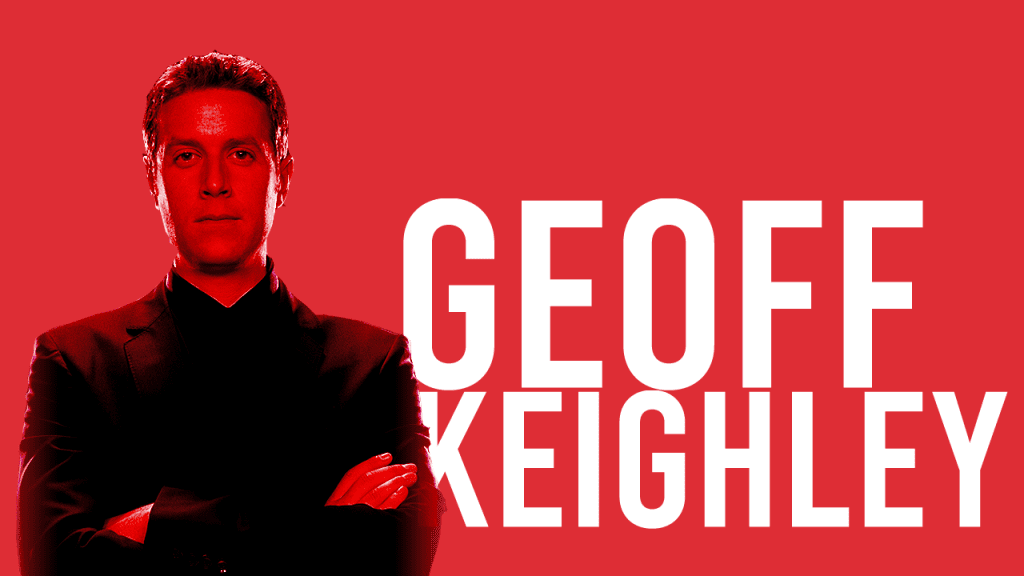There are few bigger names in the world of video games journalism than Geoff Keighley. The former G4 and MTV host is well-known today for his role as the presenter and creator of The Game Awards, a gaming awards show which has seen its audience increase from under two million viewers in 2014 to over 20 million in 2018.
But not everyone knows how close he’s been to the awards show’s concept over the years. He helped work on the first ever TV video games awards show in 1994 on TBS. And he spent a decade producing a forerunner to the Video Game Awards for cable network Spike.
Strangely, leaving cable television seemed like a liberation for The Game Awards, which have hugely grown in stature and relevance since they debuted in 2014. They’ve been host to massive moments like Hideo Kojima’s 2016 return and industry icon award, the unveiling of games like Mortal Kombat 11 and A Way Out developer Josef Fares’s infamous 2017 rant.
I wanted to ask Geoff about the future of the industry, so we talked about The Game Awards, Google’s new Stadia gaming platform, and the future of virtual reality. He (perhaps understandably) avoided questions about more controversial issues like crunch in games development, but it was still a productive, interesting chat. This is our exclusive Spiel Times interview.
Spiel Times: Hi Geoff, thanks so much for answering our questions. We really appreciate it. What are your ambitions for the future of The Game Awards?
Geoff Keighley: Our hope is to continue building The Game Awards, and maybe, one day, it will be seen as the biggest and most important awards show in all of entertainment. We are just five years into our journey. I want to keep growing the show around the world as gaming continues to grow.
ST: What personal impact has the growth of The Game Awards had for you?
GK: I am so honored the game industry trusts me to produce and develop The Game Awards. It has been personally difficult to fund and produce the show independently over the years, but the response from the industry and fans has made it worthwhile. I often run into gamers on the street and they always thank me for making the show. That means a lot to me personally and helps me cope with the sacrifices I’ve had to make to bring this show to life.
ST: Film critic Roger Ebert once said that “video games can never be art.” Do you worry that there’s still a snobbery about gaming as a medium within the broader cultural narrative, where people take film and photography seriously as artforms but completely dismiss gaming, or do you think that attitude is beginning to fade?
GK: There’s no question that the artistic aspect of gaming has been dismissed or misunderstood in the past. In many ways, I created The Game Awards to help elevate the appreciation of this medium as the most powerful, challenging and inspiring form of entertainment. The industry is making a lot of progress on this front.
ST: Do you think the current model of AAA games development is sustainable?
GK: Video games stand at the intersection of technology and entertainment so the only constant is change. The model is evolving. A great single player AAA game can still be a huge success, but there are many different business models today — and more games are becoming ongoing services and living worlds. It’s an exciting time.
ST: With the launch of Google Stadia, do you think the “big three” (Microsoft, Sony, and Nintendo) are under serious threat? Is there room for more than three major players in that first-party space?
GK: It’s always exciting to see how important gaming is to the biggest technology companies out there. It’s great to see Google betting big on gaming across YouTube and Stadia. There is room for a lot of players, and the PC gaming space is also very important to the global industry, as is mobile. What I think is happening is that the industry is becoming less competitive — it’s more about content that you can play across as many devices as possible. New platforms will only increase the overall level of investment in gaming.
ST: With the launch of Valve’s new VR product Index imminent and Sony announcing 4.2 million sales of PSVR, where do you think VR stands? Is high-grade consumer VR ready for the mainstream, or does it still need more time?
GK: It remains to be seen how VR evolves — I recently played Beat Saber on Oculus Quest, their standalone headset, and had a ton of fun. This space is going to continue to evolve, with more “all in one” solutions and less wires, making VR more accessible and less cumbersome. VR isn’t going to replace traditional gaming, but it will have an important role in the overall gaming experience, similar to AR and other immersive technologies.
ST: Thank you for answering our questions!
Thanks for reading the Spiel Times interview with Geoff Keighley. If you enjoyed it and want to read more pieces like this, be sure to follow us on Facebook, Twitter, and Instagram for the latest updates from Spiel Times.
Subscribe to our push-notifications and newsletter and to stay informed. Happy Gaming!
